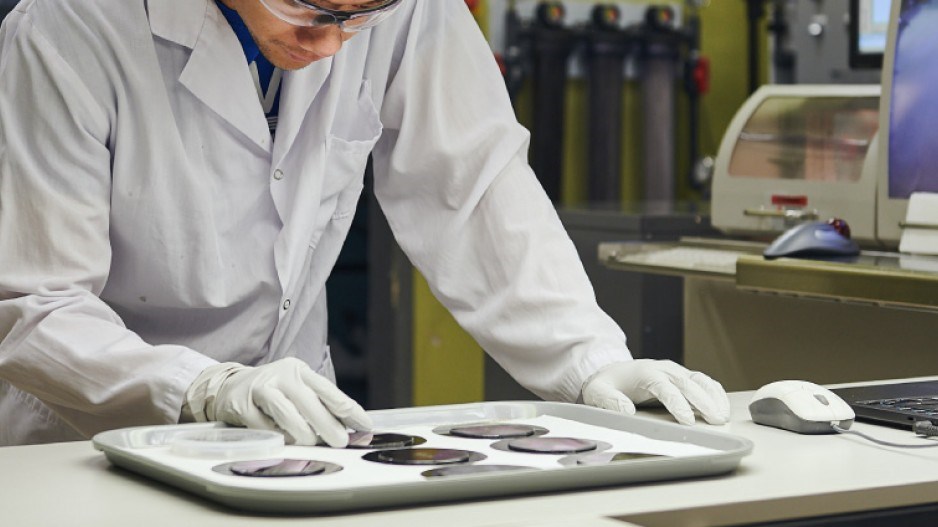Canon Inc., best known for its cameras, is developing a strong interest in a B.C. chipmaker as it makes a play for the medical device field.
The Japanese multinational will pay about $345 million (30 billion yen) to expand its 15% ownership stake of Redlen Technologies Inc. to 100% in a deal that ultimately values the Saanichton-based company at just north of $400 million.
The B.C. firm specializes in manufacturing the types of semiconductors used in medical imaging systems as well as baggage scanners.
Redlen CEO Glenn Bindley told BIV he’s excited about the potential for the Canon takeover to help his company expand both its physical footprint and its headcount in the coming years.
“It's an exciting development for us because we can see how much they can help us in the areas where we're weak,” he said, adding Redlen leadership will be sticking around to oversee expansion plans in the coming years.
“Now we really need to scale it up and drive the costs down and they can really help us in that area.”
Canon came on as a strategic investor back in 2018 and Bindley said the new parent company is fully on board with Redlen’s $40-million plan to double its 50,000-square-foot manufacturing facility outside of downtown Victoria.
Meanwhile, the West Coast company will be expanding its headcount from 200 workers to 450 workers by 2025 as it hires everything from experts in automation to product engineering.
“In many respects, it's easier to bring people into Victoria than it is to Vancouver because there is a little bit of an advantage in terms of cost of living,” Bindley said.
Canon will be using Redlen’s cadmium zinc telluride chips as part of its efforts to launch the next-generation of CT (computer tomography) systems.
Bindley likened current CT systems to a camera with one-megapixel capacity that can only shoot in black and white. The next generation, known as photon-counting CT scanners, would be the equivalent of upgrading to a camera with 10 megapixels that can shoot in full colour.
“If you think of the automobile industry, there's a sea change from internal combustion to electric vehicles. CT is in a similar situation,” Bindley said.
Redlen’s chips would essentially allow Canon’s medical devices to take clearer images while exposing patients to lower x-ray radiation levels.
Last month, Canon Medical Systems Corp. — a customer of Redlen’s and a subsidiary of Canon Inc. — announced it was launching its first trial of these next-generation medical imaging systems as part of a research project with Japan’s national cancer centre. Redlen's chips will be deployed in the new technology as part of the trial.
“It really is going to make a huge difference to just innumerable patients,” Bindley said.
Vancouver-based Pangaea Ventures Ltd. previously led a $5.5-million financing round for Redlen back in 2014 and owns 20% of the company ahead of the official close of the acquisition, expected at the end of the month.
“They stepped in and led the round to pull us back from the brink and recapitalize the company,” Bindley said, referring to a crash crunch Redlen faced during early efforts to commercialize.
“They've been very, very, very supportive.”




